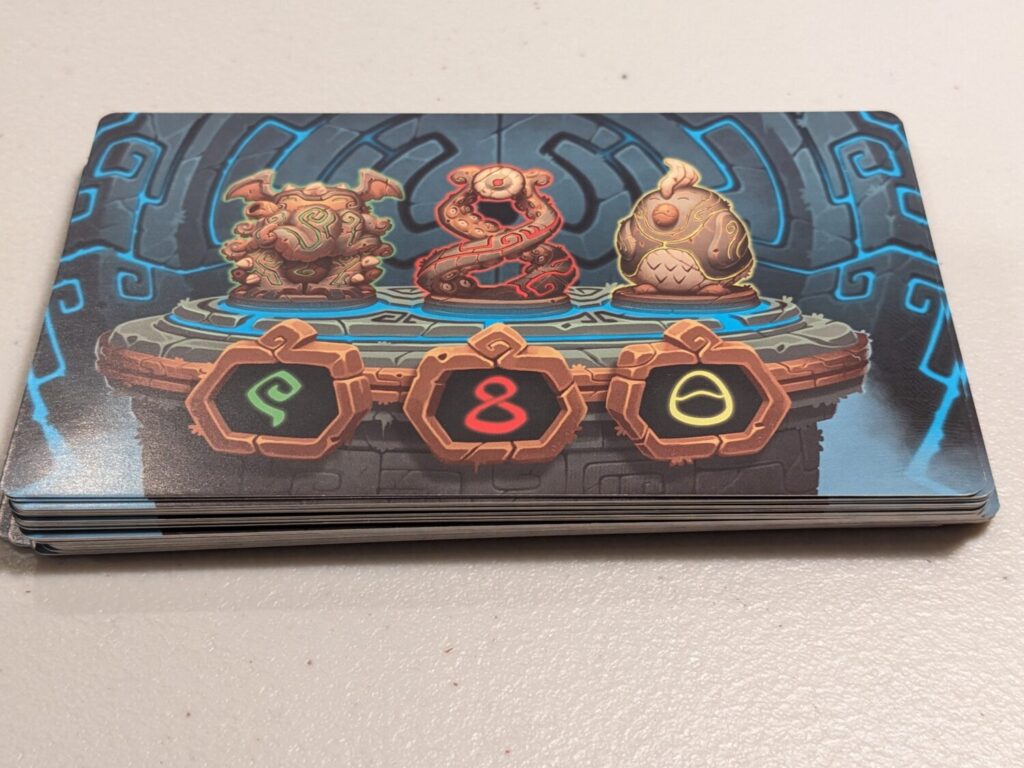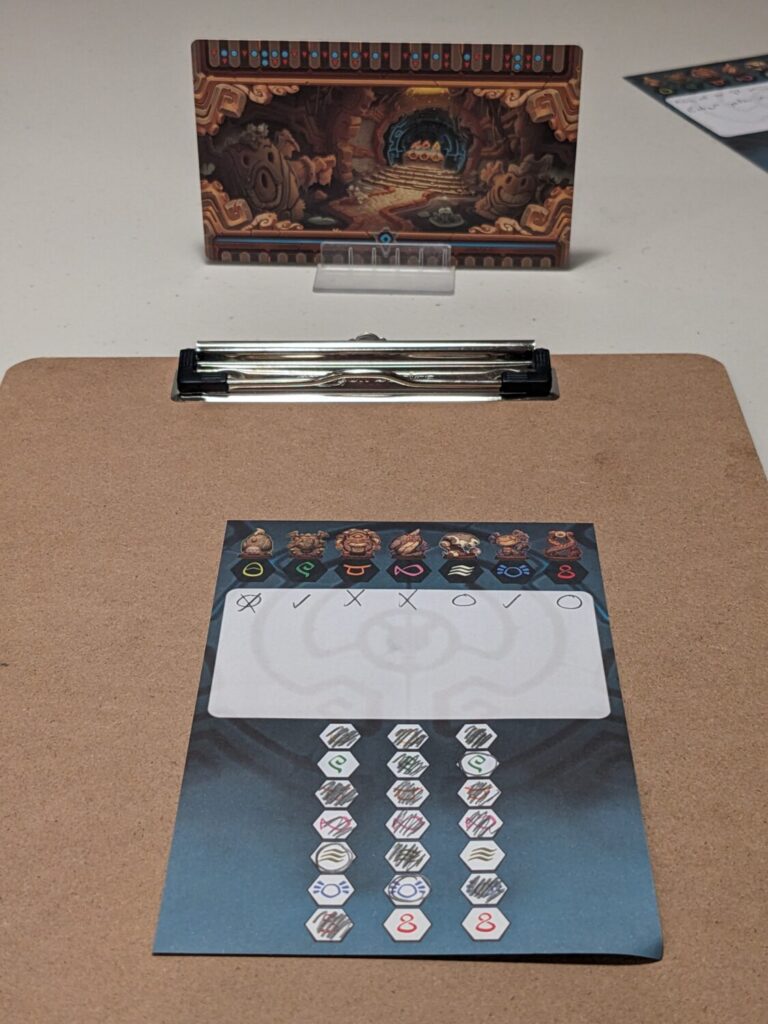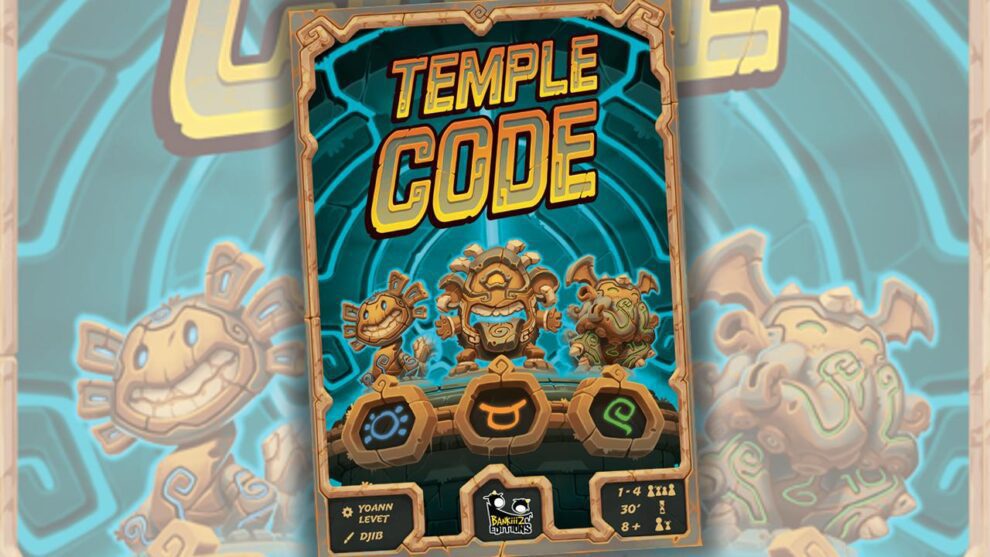Disclosure: Meeple Mountain received a free copy of this product in exchange for an honest, unbiased review. This review is not intended to be an endorsement.
Yoann Levet is the designer behind the deduction masterpiece Turing Machine. Published by Scorpion Masqué in 2022, Turing Machine was everywhere in my gaming circles. The graphic design was great, the puzzles were spectacular, and even the cool cutout title on the front box cover was a fun aesthetic.
That was my first Levet design, but prior to this, Levet also designed Myrmes, a well-regarded deduction game that is still a top-1000 title on BoardGameGeek. But since Turing Machine, Levet’s games have not landed as well, both for me and the general gaming population based purely on reputation.
Two years ago, ArcheOlogic arrived at SPIEL courtesy of Levet and the publisher Ludonaute.it had a signature toy magnifying glass known as the Archeoscope, which was used by all players to help solve puzzles in that game. ArcheOlogic wasn’t bad, but I gave my copy away soon after my review plays and never looked back.
Now I think Levet is on a slippery slope. His newest design is Temple Code (2025, Lucky Duck Games), another deduction game, and a game that after three plays is moving into the donation pile. It meets its modest aspirations because it pitches itself as a family-weight deduction game, a middling success, in part because there are only 35 relatively simple puzzles in the box.

And, That’s a Wrap
Temple Code is a deduction game for 1-4 players. Using a sheet of included note paper to track clues and a cipher system to help deduce a three-symbol code, players can tackle Temple Code in one of two game formats.
In multiplayer, players have a card facing their seating position that hides the answer to their personal “temple code” on the back side. The side facing the player shows a small combination that, when matched with any of the other cards, will provide hints as to the number and positioning of the symbols on the answer side. On a turn, the active player will select an opponent to look at one of the two clue cards in front of that player. The active player keeps one card and gives the other to that opponent, ensuring both now have a little more information to help solve their personal clue card.
Then, each player can use their cards to line up the decoding system to see how many of the symbols on their riddle card also appear on the card they are trying to decipher. Turns continue in this format until any player solves two riddle cards, instantly winning the game.
I never even got that far, because solo is so much more straightforward. In the solo mode, a player uses the entire deck to attempt a high-score challenge to see if they can reach eight or more solved cards. (I never got close to that, consistently getting three or four cards solved correctly.) An entire game can be played in about 20 minutes and tickles the right brain functions for someone looking for a simple brain teaser.

For better or worse, that’s the whole game. Temple Code immediately became a game I would show to my kids (ages 11 and 8), because there are no funny shenanigans here: the puzzle always has a specific answer, and the simple codes (always three icons, and all three icons are always different) left me in a spot where I could comfortably get an answer right, even if I needed to take more risks to slide up on the high-score challenge presented in solo play.
Temple Code is completely and totally fine. For the average puzzle game player, I think Temple Code will be a little too easy—more importantly, it will prove to be very repetitive. When combined with such a small pile of potential solutions, it wouldn’t shock me if some players are able to memorize the 35 different answers. (Well, maybe a little time, since that still means surpassing 30+ plays of the same game!!)
As a Turing Machine fan, Temple Code falls far from the deduction game tree for Levet, the designer. I highly recommend Turing Machine to anyone who loves a fun deduction game, especially one with such magnificent production quality. Temple Code might fit for players who like deduction games but who are looking for ways to introduce deduction puzzles to their nine-year-olds, or want a more casual game to serve as a filler for a night full of similar gaming experiences.
Temple Code is missing the magic of Levet’s earlier designs. I don’t regret my time with it, but I am sure I am not going back.











